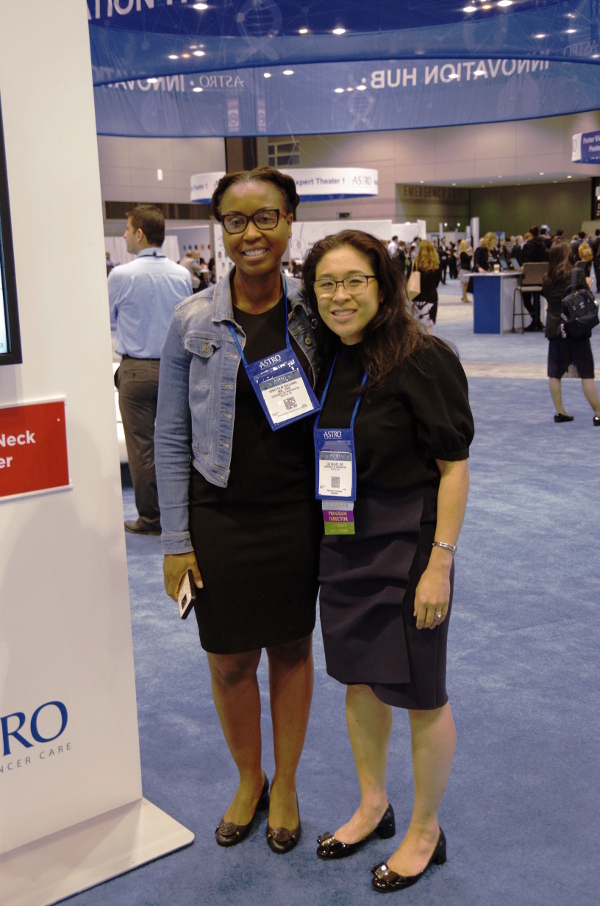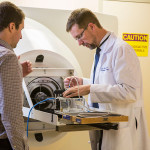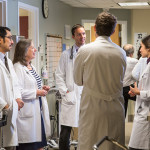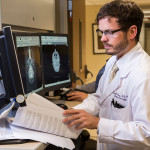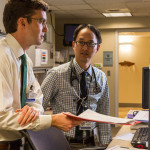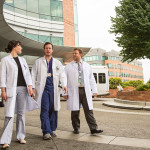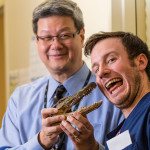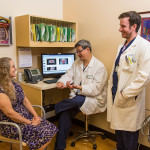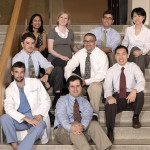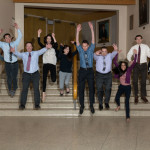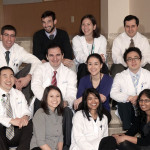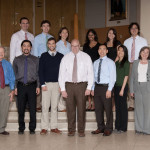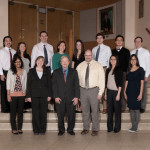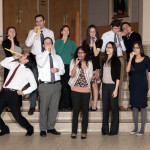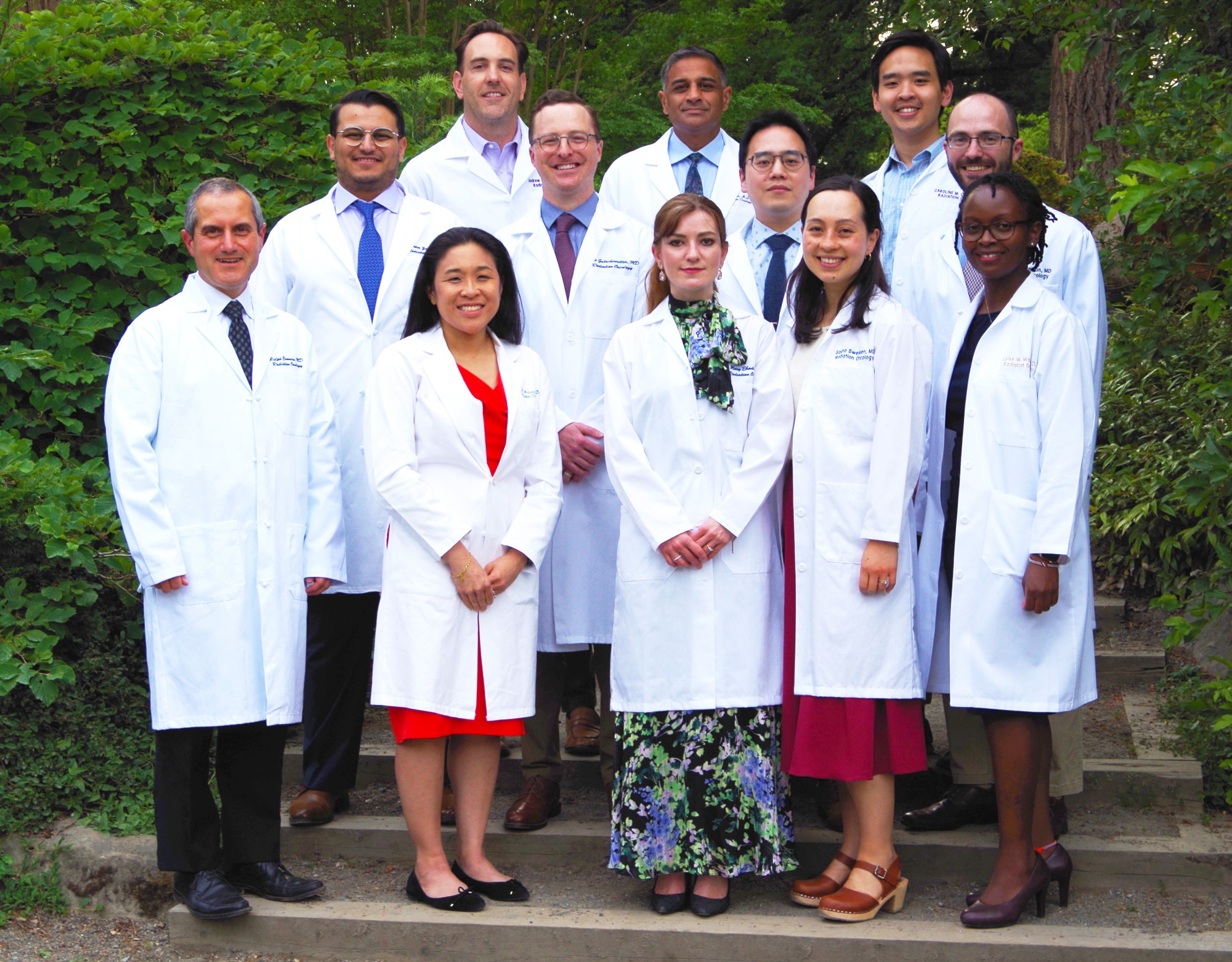
Residency Program
The Radiation Oncology Residency Program at the University of Washington (UW) is a four-year program beginning in the PGY-2 year. The program, which accepts two to three residents annually, is fully accredited by the Accreditation Council for Graduate Medical Education.
The goal of the residency program is to train future leaders in the field of radiation oncology. Residents receive excellent training in clinical radiation oncology, treatment planning, radiation physics and radiobiology, enabling graduates to provide comprehensive patient care. Residents conduct substantive research in clinical radiation oncology, translational science, education, health services research, and safety and quality improvement. They have 12 months dedicated to research during PGY-4.
The collaboration between UW Medicine, Fred Hutchinson Cancer Research Center , Seattle Children’s and Seattle Cancer Care Alliance (SCCA) represents the largest and only NCI-designated cancer care center in the Pacific Northwest. The institution participates in the National Comprehensive Cancer Network, and our faculty members contribute to the NCCN guidelines. Fred Hutch pioneered bone marrow transplantation and continues to drive research into mechanisms of cancer development and treatment, with three faculty having been awarded Nobel prizes. We are ranked as the ninth in the nation for cancer care by US News & World Report in 2020-21, and we have the largest radiation oncology residency program in the Pacific Northwest.
Program Structure
Clinical rotations are organized in five blocks per year by disease site, which allows residents to learn a disease site in depth. Most rotations follow an apprenticeship model with a 1:1 or 2:1 attending/resident model. Rotations occur primarily at University of Washington Medical Center(UWMC) and SCCA with a few specialty rotations at Harborview Medical Center Gamma Knife Center and the Veteran’s Affair Hospital (VA). The SCCA Proton Therapy Center and Seattle Children’s Hospital are incorporated as part of the disease site rotations.
Residents take weekly home pager call. The on-call resident handles inpatient consults specific to radiation treatment and after-hours patient questions. There is always an attending on call with the resident to provide supervision. Additionally, the on-call resident will be on site at UWMC for any weekend treatments.
Resident Education
Clinical didactics are organized into blocks by disease site. Each block includes lectures, case sessions, journal clubs, and hands-on dosimetry/contouring sessions. The didactics are given by the faculty with expertise in the disease site. Our medical physics course is led by Dr. Eric Ford, who has published a curriculum utilized nationally. The radiation biology course is a combination of online and in person lectures. Residents are given protected time from clinical duties for morning lectures and from 8-11 am each Friday for a block of didactics.
Dr. Lia Halasz meets weekly with residents to discuss program needs and leadership topics. Dr. Kent Wallner organizes a monthly journal club, during which residents learn to critically evaluate the literature. Resident education is enhanced by case sessions with visiting professors and monthly Grand Rounds. We also include hands-on brachytherapy labs.
Resident Research
Residents focus on research during their PGY-4 year. They are assigned a research/career mentor in the second half of their PGY-2 year and submit research proposals to the program in the PGY-3 year. There is an option for Holman Pathway, though few residents will take this path and must demonstrate an interest in a career centered around research, as well as exceptional clinical milestone performance.
A broad range of research is supported. Examples of recent resident research projects include translational research regarding immunotherapy and radiation therapy, functional imaging in liver and lung cancer, health disparities for American Indian/Alaskan Native communities, quality improvement and safety culture, proton therapy outcomes, and physical compensators for Cobalt machines to approximate IMRT treatments in India. Click here to see our AY21-22 Chief Residents present their research year projects at our Radiation Oncology Grand Rounds
Synopses of Physics Faculty Research
- Video by Stephen Bowen, PhD, DABR Associate Professor
- Video by Eric Ford, PhD, DABR, FAAPM Professor, Director, and Vice-Chair – Medical Physics
- Video by Kristi Hendrickson, PhD, DABR, FAAPM Associate Professor

